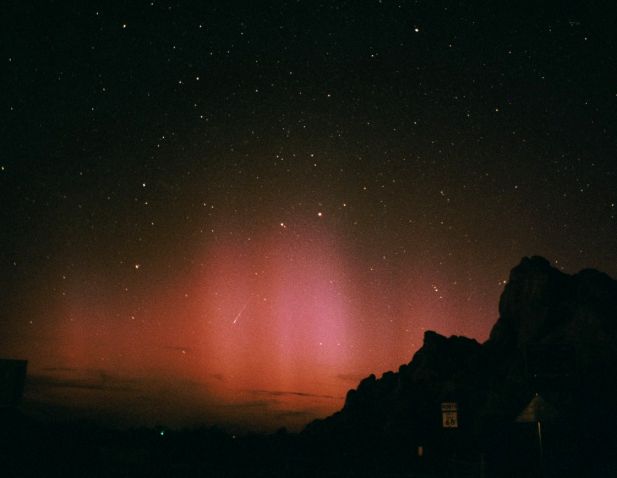 |
Астронет: Астрономическая картинка дня Северное сияние над Западным Техасом http://www.astronet.ru/db/msg/1162436/eng |
Credit & Copyright: Chris Grohusko
Explanation:
The
aurora borealis, or
northern lights, are not a common sight
in the southwestern United States.
But a strong solar
coronal mass ejection in early August triggered
geomagnetic storms and aurora which were
widely reported, even under west Texas skies.
This striking view of the aurora was recorded from a site near
El Paso, Texas and the Hueco
Tanks State Historical Park at
a latitude just shy of 32 degrees north.
Polaris
is the brightest star visible near the top and right of center while a
Perseid meteor pierces the
auroral glow
left of picture center, below the bowl of
the little dipper.
Want to see an
aurora?
Dark skies and high latitudes (closer to the north or south
poles) help.
And you might keep an eye on the
space weather report.
The last big
coronal
mass ejection headed toward planet Earth was detected by
space-based
instruments on September 12.
It may trigger geomagnetic storms and
auroral activity
beginning September 14th.
Authors & editors:
Robert Nemiroff
(MTU) &
Jerry Bonnell
(USRA)
NASA Web Site Statements, Warnings,
and Disclaimers
NASA Official: Jay Norris.
Specific
rights apply.
A service of:
LHEA at
NASA /
GSFC
& Michigan Tech. U.
